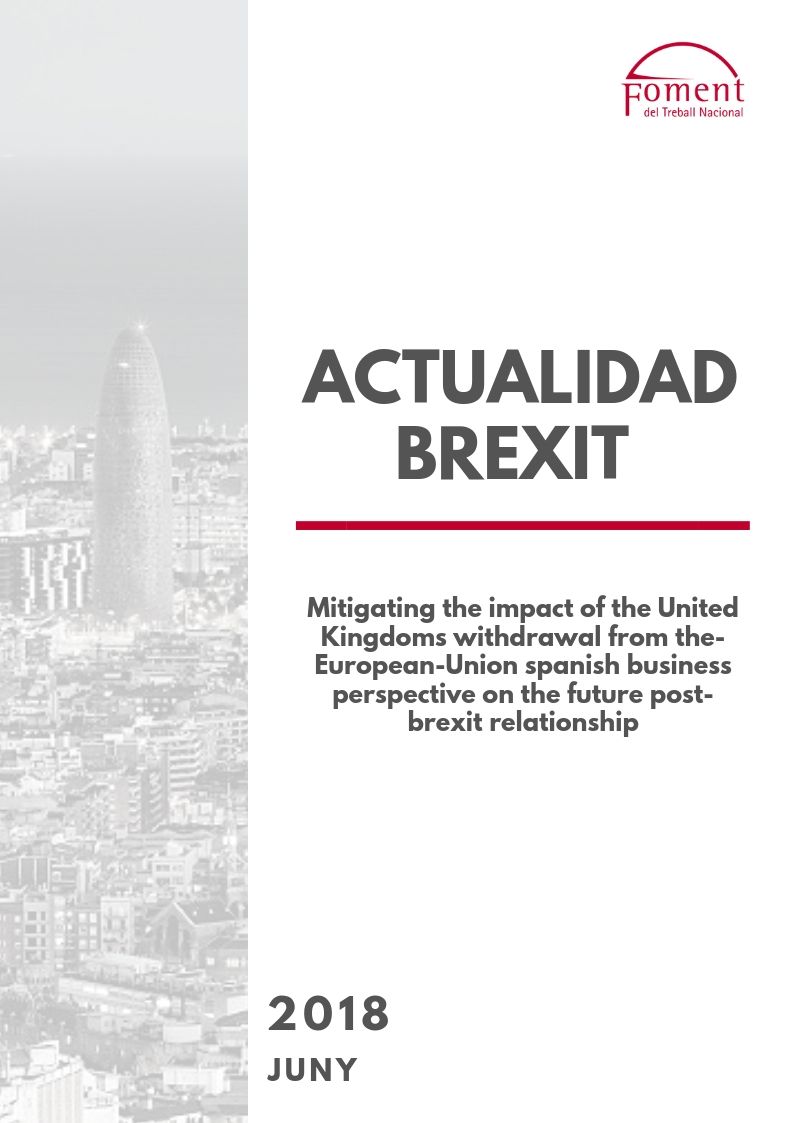29th, On March 2017, nine months after the supporters of the United Kingdom’s withdrawal from the European Union (Brexit) won the referendum, the British Government officially announced to the EU its intention to leave it. It was the first time omething like this happened in more than 60 years of European integration. Nonetheless, the EU responded with extraordinary unity and rapidity to face the emergence of the great concerns that it entailed.
Only a month later, on April 2017, the European Council, already in its composition of the EU- 22nd, 27, adopted the guidelines to negotiate the withdrawal by unanimity. On May the Council translated them into a negotiating mandate, from which the indivisibility of the four freedoms of the European internal market (free circulation of people, goods, services and capital) stands out and, therefore, leaving out the possibility of the so-called «cherry-picking»; together with the safeguard of the autonomy and legal order of the EU.
On June 2017 negotiations between the European Union and the United Kingdom began, taking as a starting point the realization of Brexit and as a goal the limitation of its negative effects, trying to ensure a process as orderly as possible. The crucial issue is to determine the terms that will regulate, on the one hand, the withdrawal and the transition period, and, on the other hand, the future relationship.
After a year of discussions, there has been considerable progress. First, on March 2018, a provisional agreement was reached on certain parts of the draft Withdrawal Agreement, including a 30th, transition period of 21 months counting from the day after the demise (March 2019) until 31st, December 2020. Secondly, the beginning of the negotiations on the framework for the future 23rd. EU27-UK relationship, based on the guidelines adopted by the European Council on March.
Since the above developments are not consolidated, there is a real risk that the UK will leave the European Union without an agreement. Everything depends on reaching an agreement on time on pending issues, including the most sensitive ones, such as the border dividing the island of Ireland which will become the only land border between the United Kingdom and the EU.
Consequently, it is essential that not only business organizations and companies are prepared for an eventual abrupt disengagement of the United Kingdom, but that public authorities do everything necessary to support them by facilitating their adaptation, especially SMEs.
At the same time, the British Government has to clarify its positions as soon as possible to finalize the text of the mentioned Withdrawal Agreement and to advance in the definition of the framework for the future relationship. In regard to legal certainty and predictability, it is essential that the withdrawal negotiations conclude within the established timeframe (October 2018) and that its content complies with the aforementioned negotiating directives.
Considering the significant exposure of the Spanish economy to the United Kingdom (see the statistical annex), the following section presents some basic aspects that CEOE considers essential to reduce disruption caused by Brexit to the extent possible in the short, medium and long term.






